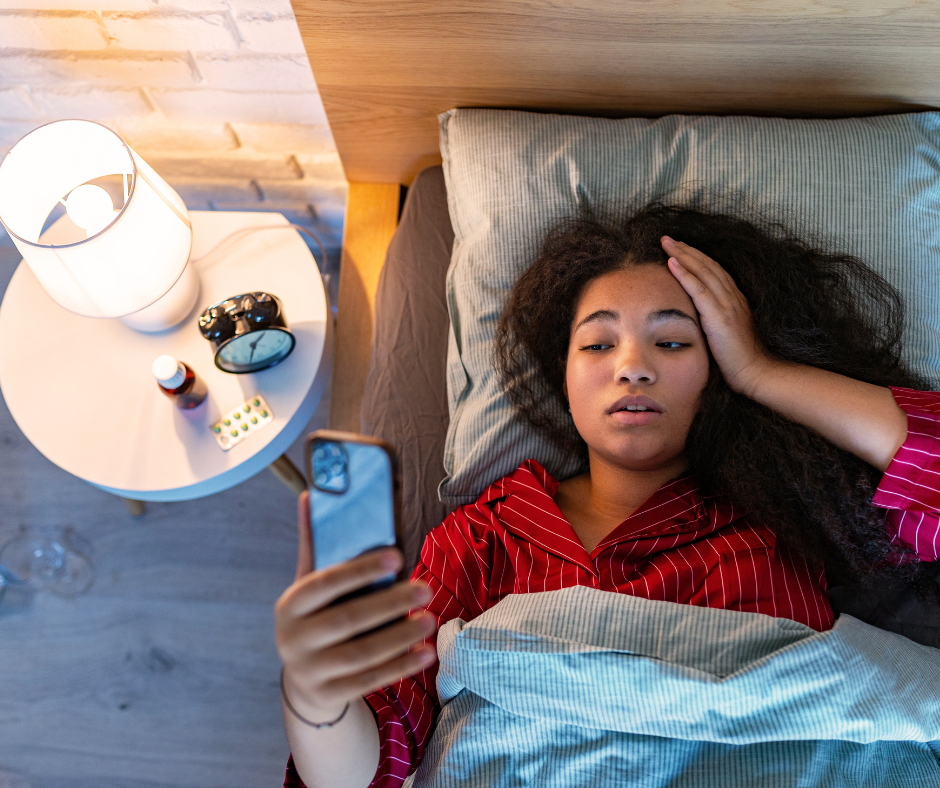The #1 Sleep Disruptor You’re Probably Ignoring
How Light Exposure Impacts Sleep and Mental Clarity
Suppose you’ve tried all the usual tricks to sleep better… Cutting out caffeine, winding down early, and avoiding screens, but you’re still tossing and turning or waking up foggy. In that case, it might be time to consider an overlooked factor: light exposure.
Light is one of the most powerful signals your body receives all day long. It doesn’t just help you see, it tells your brain when to be alert, when to wind down, and when to sleep. In fact, light is the #1 cue your internal clock (or circadian rhythm) uses to regulate your sleep-wake cycle. If that rhythm is off, so is your sleep and your mental clarity.
Let’s explore why light matters, how it might be sabotaging your rest without you realizing it, and what you can do today to reset your rhythm.
Why Light Matters More Than You Think
Your body has a master clock located in the brain’s suprachiasmatic nucleus (SCN) that runs on a roughly 24-hour cycle. This circadian rhythm governs everything from hormone release to digestion, mood, and yes, sleep.
Light, especially natural sunlight, is the primary time-setter for this internal clock. Morning sunlight helps suppress melatonin (the hormone that makes you sleepy) and increases cortisol (which gives you energy and motivation). As daylight fades, melatonin gradually rises, helping you wind down for sleep.
But here’s the catch: modern life has hijacked this delicate dance.
We start our mornings indoors. Many people spend the first hours of the day under dim indoor lighting, which doesn’t give the same strong signal to the brain that it’s time to wake up.
We flood our evenings with artificial light. From overhead bulbs to phone screens and TVs, evening light delays melatonin production, keeping us wired long past our natural bedtime.
We rarely experience natural darkness. Even small amounts of ambient light from a streetlamp, nightlight, or alarm clock can interfere with melatonin and fragment sleep.
Signs Your Light Exposure Is Off
You might not realize it, but disrupted light patterns can show up in subtle ways, including:
Trouble falling asleep or waking up too early
Feeling groggy or disoriented in the morning
Midday energy crashes or trouble focusing
Mood dips, irritability, or low motivation
Brain fog or slower memory recall
These symptoms are often misattributed to stress, diet, or poor habits, but your lack of hygiene may be the missing piece.
Reset Your Light Exposure in 5 Simple Steps
If you’re ready to sleep more deeply and feel more clear-headed during the day, start with a light exposure reset. You don’t have to overhaul your life, just make a few strategic shifts:
1. Start Your Day with Sunlight (10–20 minutes)
Go outside within the first hour of waking. Stand on a balcony, walk the dog, sip your tea… whatever works. Even a cloudy sky provides powerful circadian input.
Bonus: This can help shift your sleep schedule earlier if you’re a night owl.
2. Dim the Lights After Sunset
Swap bright overhead lights for lamps, amber bulbs, or candles after dark. This mimics the natural sunset and prepares your body for sleep.
3. Avoid Screens 1–2 Hours Before Bed
Blue light from phones, tablets, and TVs can delay melatonin and make it harder to fall asleep. Try reading a physical book, taking a bath, or listening to music instead.
If you must use screens, install a blue-light filter or wear blue-light-blocking glasses.
4. Use Strategic Indoor Lighting
During the day, use bright, cool-toned lighting to boost focus. In the evening, switch to warmer, dimmer light sources to mimic dusk.
5. Sleep in Total Darkness
Your bedroom should be pitch black. Use blackout curtains, cover LED lights, and ditch any nightlights unless absolutely necessary. If needed, wear a sleep mask.
Light & Mental Clarity: The Surprising Connection
Poor sleep doesn’t just make you tired. It clouds your judgment, slows memory, and impairs mood. But even before sleep is impacted, disrupted light exposure can alter your brain’s performance.
Lack of natural light during the day has been linked to:
Increased risk of depression and anxiety
Lower serotonin production
Reduced alertness and attention
Difficulty regulating emotions
By syncing your light exposure to your body’s natural rhythms, you support not only better sleep but also sharper focus, steadier moods, and greater mental resilience.
Ready to Reset?
If you suspect your sleep and energy issues are linked to poor light hygiene, don’t wait to make a change. A few consistent shifts in your daily light exposure can yield big results.
Let light work for you, not against you.


